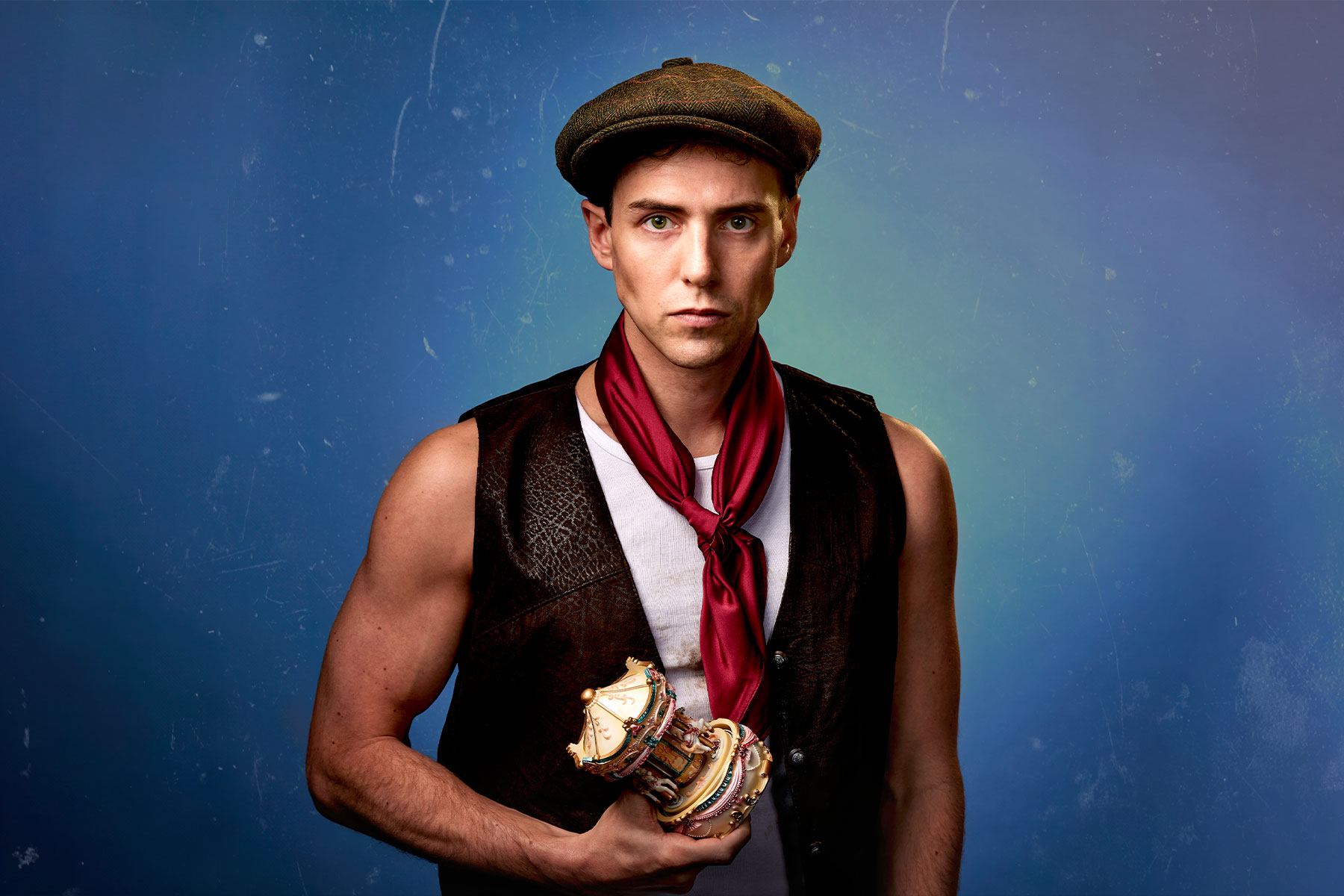Little Women
Nearly two years on from its last Fringe season at Sadler’s Wells (see below), these Little Women have matured into a much slicker West End show, which should – in Emma Reeves‘ charming adaptation of Louisa May Alcott’s heartwarming literary classic – once again, make for solid family-oriented theatrical fare in the run-up to Christmas.
The fine 13-strong ensemble work well together, although there are some isolated frustrations . Of the loveable March sisters – inspired by Alcott’s own family – while Sarah Edwardson’s sensible eldest Meg and Diana Eskell’s spoilt Amy impress most, in the central role of Alcott’s alter-ego, writer Jo, Sarah Grochala, disappoints. Her performance feels, at the same time, a tad too forced and too restrained, never fully plumbing the emotional depths required for the real tear-jerker scenes with lovestruck Laurie (Paul Hampton) and sick younger sister Beth (an enchanting Phoebe Thomas).
In supporting parts, Ann Micklethwaite and James Rhodes rev up the comic tempo nicely as snooty socialite Sallie Gardiner and nervous Ned Moffat. And the evening’s two real stand-out performances are delivered by the same actor, Daniel Betts, who, in the starkly contrasting roles of English aristo Fred Vaughan and Jo’s impoverished German suitor Professor Bhaer, is first highly amusing and then deeply touching – in both cases, an absolute delight.
Bonus points, too, in Andrew Loudon‘s well-paced production for the intermittent musical interludes, beautifully sung a capella by the cast. A very nice touch.
– Terri Paddock
NOTE: The following review dates from December 2002 and this production’s earlier London run at the Lilian Bayliss Theatre, Sadler’s Wells.
Louisa May Alcott’s popular novel has already graced the silver screen and now, care of an adaptation by Emma Reeves, and after runs Upstairs at the Gatehouse and at the New End, Little Women are now ready to receive you at the fantastic Lillian Baylis theatre at Sadler’s Wells.
The story, as if you didn’t know it already, revolves around the March family. Daddy (who speaks omnipotently through letters) has gone off to fight in the American Civil War, leaving Mrs March and her four daughters to cope on their own, each of the girls finding and following their different paths. There’s Meg the eldest, Jo the tomboy, Amy the artist and Beth the shy one. Add the boy next door, Laurie, and hormone levels begin to rise, so things get interesting.
Reeves’ adaptation is faithful to the book, and each scene is short and sweet keeping the audience’s firm attention. The first two thirds of the piece snap along with good humour though, towards the end, things turn a bit too much to sentimental mush for my liking.
Andrew Loudon‘s direction is, on the whole, clear and concise. It’s in the few moments of indulgent stylisation where the production falls down. These interludes are simplistic, out of place and, thankfully, kept to a minimum. Meanwhile, while functional, the two-tier house design by Rachel Payne lacks imagination.
Performance-wise, Little Women is a mixed bag. Dodgy American accents teamed with wooden performances from elder sisters Meg and Jo (Sarah Edwardson and Sarah Grochala) and Mrs March (Lizzie Conrad) make for disappointing characterisations. But Diana Eskell‘s turn as the vain Amy is impressive, her gradual transformation from spoilt brat to mature woman is subtle and totally convincing, while Nikki Leigh Scott is willowy and watchable as the wide-eyed Beth.
But to my mind, it’s supporting cast member Ann Micklethwaite who shines brightest, trading off between crabby Aunt March and condescending debutante Sally Gardiner, both parts perfectly pitched and so different you’re amazed to discover it’s the same actress.
Little Women is a charming story for an audience of any age and a good Christmas alternative to panto – there’s even a cross-dressing Dame (Aunt Carol is played Tim Fessler, who also doubles up as Meg’s suitor). In truth, you can’t help but warm to the March family and, while Reeves’ adaptation may not mine the darker depths of Alcott’s novel, if it’s wholesome family entertainment you’re after, this may be the very thing.
– Hannah Kennedy










